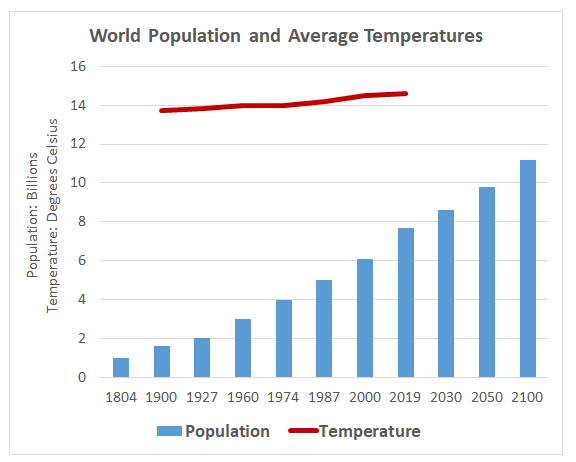Global Action, Acceptable Climate Future: Phys.org
Global Action, Acceptable Climate Future: Phys.org
Read the article from Phys.Org about the planet's rising temperatures and the need for immediate action .
For a longer version of this article, read “Robust abatement pathways to tolerable climate futures require immediate global action,” in Nature Climate Change (2019).
Also read about climate and global temperature from NOAA and Climate.gov:
"The concept of an average temperature for the entire globe may seem odd. After all, at this very moment, the highest and lowest temperatures on Earth are likely more than 100°F (55°C) apart. Temperatures vary from night to day and between seasonal extremes in the Northern and Southern Hemispheres. This means that some parts of Earth are quite cold while other parts are downright hot. To speak of the "average" temperature, then, may seem like nonsense. However, the concept of a global average temperature is convenient for detecting and tracking changes in Earth's energy budget – how much sunlight Earth absorbs minus how much it radiates to space as heat – over time."
Economist William Nordhaus of Yale has warned that an increase in the global average temperature of 2°C would change the world's climate in ways not seen for “the last several hundred thousand years.”

2 degrees C may seem like a small change, but the consequences
could be horrific (Sources: Worldometers and Current Results)